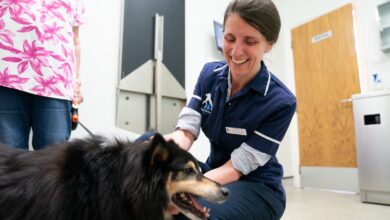ScienceVeterinary
Red Setters, Bulldogs and Boxers most likely to suffer incontinence

Male Irish Red Setters, Boxers, Bulldogs, Bull Mastiffs and Fox Terriers are more likely to develop urinary incontinence than the males of other dog breeds, according to new research.
You'll need to
subscribe to unlock this content. Already subscribed? Login?







